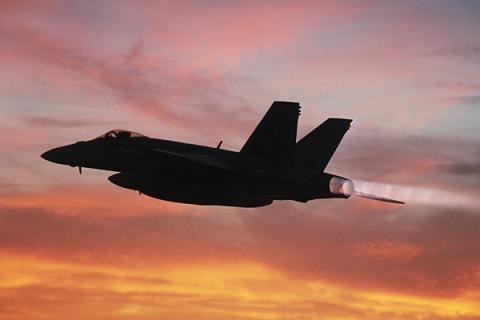Fighter Pilot Rules for Life #12: Rank and Flying

The main job an officer had in the squadron was to be a pilot or RIO. Pilots were judged on their competency in the air, whether they were ‘a good stick’. This ranking went on a scale from “a damn fine stick’ to ‘unsafe at any speed’.
Lieutenants, once they earned their wings, needed to fly often to build up competence, confidence, and situational awareness. Good RIOs helped with the training after the training command sent the young 'uns to an operational squadron and the best RIOs helped keep them alive in bad situations. With a nugget, also known as an FNG – Fucking New Guy, a RIO had to keep an eye out for trouble on the horizon of the lieutenant's experience and a hand ready to command eject. Generally, lieutenants knew less than they thought they did and were an exemplar of a little knowledge being a dangerous thing. A strong squadron scheduled flights to give the lieutenants the experience they needed every day. When not flying, FNGs were good for weekend duty and holiday duty, voting officer, drug and alcohol officer, mailroom duty, mess officer, dues collection – anything that had little or no effect on actual flying operations.
With luck, lieutenants became captains. Captains flew. The backbone of the operational squadron, the good ones helped both ends: training the lieutenants and getting work done for the OpsO, XO and Commanding Officer. But they had no grey hair, no responsibilities to worry about except to become the best damn pilots in the free world and beyond. Every fighter pilot wanted to stay a captain forever.
Eventually captains either left the Corps or were promoted to major. Majors in the squadron were the OpsO who scheduled flight, the XO who took care of the admin and kept the CO happy, and the Maintenance Officer who made sure the planes all took off each day. Responsibility was their life. Once in a while they got in some flight time, at least enough to maintain flight status and flight pay, but the dark specter of Life After Flying hulked over their lives as shit-hot pilots.
The CO was a Lieutenant Colonel. Only one per squadron. Being a CO of a fighter squadron in the Marine Corps was an honor, a privilege, and life-changing. The good ones maintained ties throughout their lives to those who served willingly under them and at their wing.
But not all got there.
In the Air Force, aviators fly. Someone else does all the other jobs in a squadron. The Marine Corps, with a smaller force and budget to draw on, needs all Marines to do their duty: to run the 3 mile PFT; to know how to carry a rifle, to load, shoot and clean it; to serve with the grunts on occasion and learn what the Marines are doing on the ground when they need fire support.
Aviators fly, but good Marines do more than that. Good Marines support the whole mission, the operation of the squadron, the training of the lieutenants and stepping up to the responsibility of the rank of major and above. A Marine who never serves a ground tour, never does a favor for his Monitor (the guy in a cubicle in the Pentagon who has to fill all the billets), that guy – he thinks he's Peter Pan – but he's just a lost boy.
I knew some of those lost boys. Some never married, never should have. A few people I knew loved the flyboys and married them. Usually those boys stayed in NeverNeverLand, while the spouse took care of the real world.
My favorite people knew that Tink's fairy dust wouldn't last forever and they accepted grounding in reality. Just as a squadron needs real Marines, so we need men and women who get married, have children and teach them right from wrong; people who do their best to do what's right.
My guy misses the rush of pushing the envelope, a cat launch off a pitching deck, a perfect ACM against a worthy opponent. But I love him for everything he was, has been since his last flight in a Hornet, and still is today.
When were you last captain of your soul?
Invictus
Out of the night that covers me,
Black as the Pit from pole to pole,
I thank whatever gods may be
For my unconquerable soul.
In the fell clutch of circumstance
I have not winced nor cried aloud.
Under the bludgeonings of chance
My head is bloody, but unbowed.
Beyond this place of wrath and tears
Looms but the Horror of the shade,
And yet the menace of the years
Finds, and shall find, me unafraid.
It matters not how strait the gate,
How charged with punishments the scroll.
I am the master of my fate:
I am the captain of my soul.
William Ernest Henley 1875


